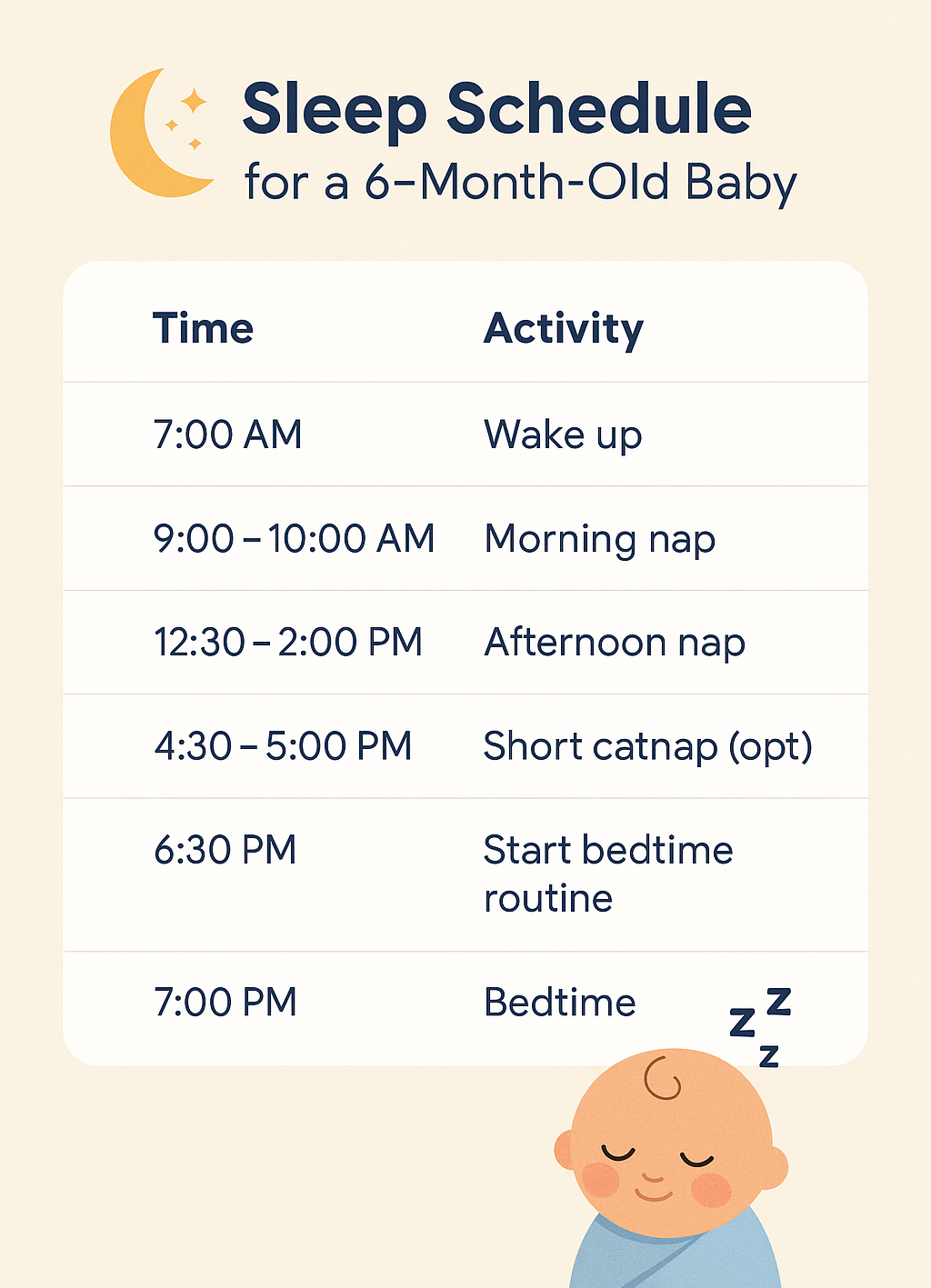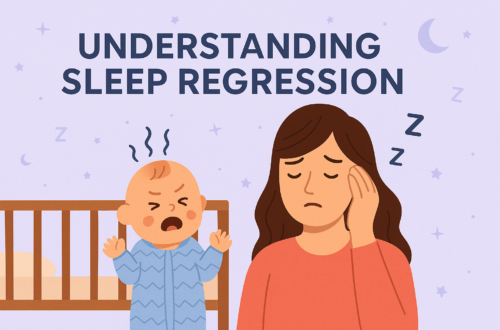At 6 months old, your baby is growing rapidly, hitting developmental milestones, and (hopefully!) starting to sleep longer stretches at night. But this is also a time when many parents wonder:
“How much sleep does my 6-month-old really need?”
“Is it time for a sleep schedule?”
“What do healthy nap and nighttime routines look like?”
This guide answers those questions with practical, research-based tips and a sample sleep schedule to help your baby—and you—get better rest.
💤 How Much Sleep Does a 6-Month-Old Need?
According to pediatric sleep experts:
- Total sleep needed: 13–15 hours per day
- Nighttime sleep: 10–11 hours (may include 1–2 brief wakings)
- Daytime naps: 2–3 naps totaling 3–4 hours
Most 6-month-olds can sleep longer at night, though not all are sleeping through without waking.
🗓️ Sample Sleep Schedule for a 6-Month-Old
| Time | Activity |
|---|---|
| 7:00 AM | Wake up, feeding |
| 9:00 – 10:00 AM | Morning nap |
| 12:30 – 2:00 PM | Afternoon nap |
| 4:30 – 5:00 PM | Short catnap (optional) |
| 6:30 PM | Start bedtime routine |
| 7:00 PM | Bedtime |
Note: Some babies transition from 3 to 2 naps around this age. Follow your baby’s cues.
🛌 Tips for Building a Consistent Sleep Routine
1. Create a calming bedtime routine
Start a routine 20–30 minutes before bed:
- Bath
- Quiet time
- Lullabies or white noise
- Storytime (yes, even at this age!)
Consistency helps signal that it’s time for sleep.
2. Watch wake windows
Babies this age can typically stay awake for:
- 2 to 2.5 hours between naps
- 2.5 to 3 hours before bedtime
Overtired babies fight sleep, so timing is key!
3. Keep naps in the crib when possible
Create an association between crib and sleep. Use dark curtains, a consistent sleep space, and avoid rocking to sleep every time (if you’re working on self-soothing).
4. Handle night wakings gently
Many babies still wake once or twice for feeds. If they’re gaining weight well and your pediatrician approves, you may begin night weaning or gently encourage longer stretches of sleep.
5. Watch for sleep regressions
A 6-month sleep regression is common. Signs include:
- Trouble falling asleep
- More frequent night wakings
- Shorter naps
This is usually temporary and tied to brain development. Stick to your routine!
❗ When to Talk to Your Pediatrician
Consider a check-in if:
- Baby is consistently waking every 1–2 hours
- Sleep issues persist despite routine
- There are concerns about weight gain or feeding
🧠 Developmental Milestones That Impact Sleep
At 6 months, babies are:
- Learning to roll
- Starting solids
- Becoming more aware of their environment
All this mental and physical stimulation can affect sleep—but it’s normal and part of healthy growth.
📌 Final Thoughts
A 6-month-old baby thrives on predictability, soothing routines, and age-appropriate wake times. You don’t need a rigid clock-based schedule—but a consistent rhythm helps both baby and parents get more rest.
Every baby is different, so adjust your schedule as needed while focusing on healthy habits. With time and consistency, better sleep is within reach.





